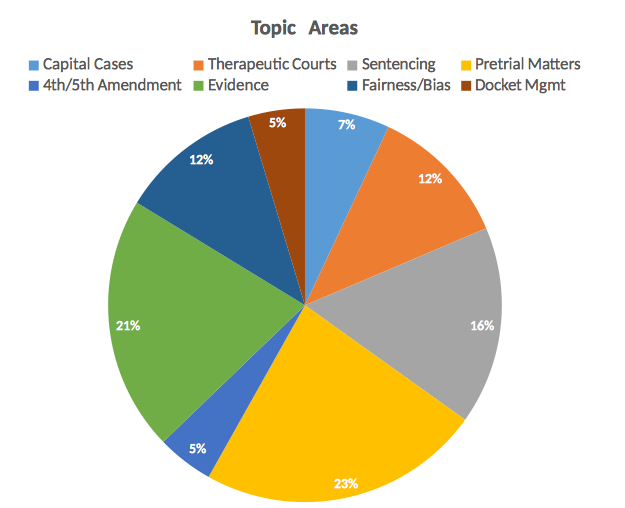By Katheryn Yetter, NASJE Futures Committee
The NASJE Futures Committee identifies trends and makes forecasts of emerging issues, knowledge, and information that has the potential to significantly impact NAJSE and the practice of judicial branch education. Moreover, we are charged with reporting on these trends and forecasts to the NASJE membership.
The National Judicial College (NJC), with funding from the Bureau of Justice Assistance, is in the process of developing an advanced curriculum on criminal justice topics for judges in 2017. As part of the curriculum development process, NJC surveyed state judicial educators, state court administrators, and other stakeholders to identify specific needs around judicial education in the criminal justice arena and how the developed curriculum might meet those needs. With this in mind, the Futures Committee shares the following information with NASJE in support of its objectives, and as a “thank you” to those NASJE members who participated in the survey.
The survey was completed in January 2016. One of the questions asked was whether adequate judicial education existed on criminal law and criminal justice topics. Even though the majority replied that mandatory education existed on these topics (67%) in their state, respondents were evenly split on whether what existed was adequate. Some of the content mentioned as needing some skill-building for judges were evidence-based sentencing, digital and forensic evidence, expert witnesses, and pretrial justice matters.
Additionally, while most states had at least an introductory or basic course to offer judges on criminal law or criminal justice topics (65%), only about half offered programming with more advanced topics. Those topics that were noted as among the most pressing for judges today were:

Of note, “evidence” most often included forensic, digital, and scientific evidence.
The NJC will also survey a limited number of its judicial alumni to further explore topics of interest to them as part of the curriculum development process. For more information about the curriculum or the needs assessment, please contact Program Attorney Irene Hart at .

